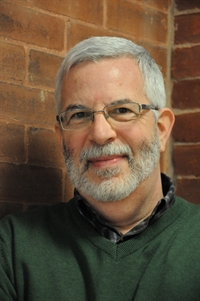Couple Therapy vs Counseling vs Mediation: Difference?
Couples in conflict can set about resolving their conflict through a number of intervention strategies. Chief among them are therapy, counseling and mediation. To the uninitiated, the differences may seem negligible and insignificant. To the practitioners of these professions the differences are more profound.
While there is a degree of overlap and all are directed to facilitating the couple relationship, the breadth and depth of focus varies.

Mediation: The focus in mediation tends to be the narrowest. Mediation is typically directed to resolving a particular dispute. The ability to communicate may be reasonable and there is less likely a longstanding history of conflict. However, while intervention is directed to determining a mutually acceptable resolution, some guidance with regard to problem solving may be provided. Even if communication is poor and there is a history of ongoing conflict, in mediation, the focus still tends to be more narrowly focused at resolving the issue at hand.
Counseling: Counseling tends to be present focused and will typically have greater breadth than mediation in that it will address more recurring issues in the relationship and often includes skill development to mitigate those recurring issues. While there may be a single issue requiring resolution, it is generally the case that recurring issues surface with some degree of regularity that undermine the satisfaction of the relationship. One’s personal past history is usually not addressed in counseling.
Therapy: Therapy provides the greatest breadth and depth to addressing relationship issues. Typically the focus is less on what needs to be resolved specifically (such as a particular dispute), but rather why this couple finds itself in ongoing conflict and how they can do things differently to avoid falling to conflict on an ongoing basis. In seeking to understand the why, it is common to include an exploration of each person’s past and the possible contributions from one’s past to current relationship behavior. While there is often some degree of focus on insight, in the end a change or alteration of behavior would usually be expected.
Persons who provide these services are not necessarily cross trained. In other words their training may be limited or restricted to only one form of intervention. It is not that either is better or worse, but that a couple’s needs may be better met with one over another approach. Couples may determine which approach is better suited based upon the severity of the issue and the regularity with which issues arise.
If you are of the view that your issues are serious and occur with some frequency and that the issues may be influenced by matters from one’s past or confused with other family matters, then it can be wise to seek out an individual who is cross trained to bring a broader skill set to helping you resolve matters. In addition to one’s skill set, experience will also factor into one’s ability to be helpful.
My approach to helping couples in distress is flexible and involves elements of therapy, counseling and mediation to varying degrees depending on an assessment of the issues involved. Feel free to explore my unique approach to helping couples.
Know someone who might need help? Please scroll down and share this article.
I am Gary Direnfeld and I am a social worker. I am also available to work through video conferencing.
(In response to this article, I received misinformed comments about mediation. I correct them here: misconceptions about mediation.)

Gary Direnfeld, MSW, RSW
gary@yoursocialworker.com
http://www.yoursocialworker.com
Gary Direnfeld is a social worker. Courts in Ontario, Canada, consider him an expert in social work, marital and family therapy, child development, parent-child relations and custody and access matters. Gary is the host of the TV reality show, Newlywed, Nearly Dead, parenting columnist for the Hamilton Spectator and author of Marriage Rescue: Overcoming the ten deadly sins in failing relationships. Gary maintains a private practice in Dundas and Georgina Ontario, providing a range of services for people in distress. He speaks at conferences and workshops throughout North America.
If your relationship is faltering, then set it as your priority.
Read: Marriage Rescue: Overcoming ten deadly sins in failing relationships.


Great article Gary! As an family Court Legal adviser now working as a family mediator and divorce coach, I notice that one of the biggest barriers to successful mediation is individuals not being able emotionally or through their communication style to mediate. There is subtly in the overlap yet its often crucial to the outcome.
We can actually provide pre-mediation guidance to make the most of the mediation process. This is not about making someone better at arguing their case, but helping to manage emotions and communicate more reasonably. Bill Eddy’s work at the High Conflict Institute does this well.
It really helped when you said that therapy is higher than counseling since it targets the root cause of the problem and keeps it from happening. I guess I will suggest this to a friend of mine whose marriage has been going downhill. It all started when the guy has been addicted to going to the casino ever since last year.